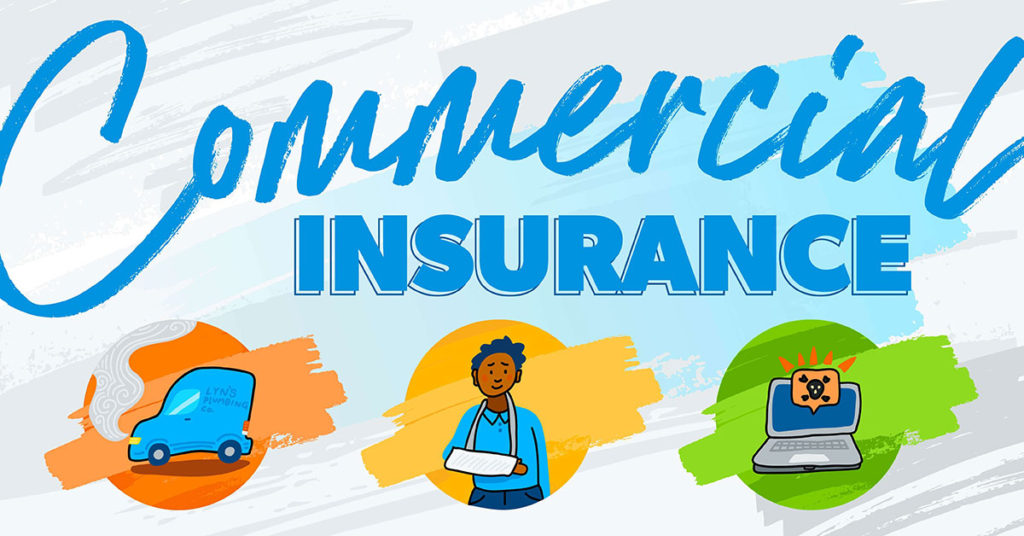What Is Meant By Commercial Insurance?

Commercial insurance refers to a broad category of insurance policies designed to protect businesses, organizations, and entrepreneurs from financial losses resulting from various risks they face in the course of their operations. It provides coverage for a wide range of potential liabilities, property damage, and other risks specific to commercial activities.
Key Aspects and Coverage of Commercial Insurance:
- Property Insurance: Commercial property insurance protects businesses from financial losses due to damage or loss of physical assets, including buildings, equipment, inventory, and furniture, caused by events such as fire, theft, vandalism, or natural disasters like earthquakes and floods. It ensures that businesses can recover and rebuild without bearing the full financial burden of property damage.
- Liability Insurance: Commercial liability insurance covers businesses against claims of bodily injury or property damage caused to third parties due to negligence or accidents on business premises or as a result of business operations. It includes general liability insurance, which is essential for protecting against lawsuits and legal expenses arising from customer injuries or damage to their property.
- Business Interruption Insurance: Business interruption insurance provides coverage for lost income and ongoing expenses if a business is temporarily unable to operate due to covered perils such as fire, natural disasters, or other catastrophic events. It helps businesses maintain financial stability and continuity during periods of disruption.
- Commercial Auto Insurance: Commercial auto insurance covers vehicles used for business purposes, such as delivery trucks, company cars, and vans. It provides protection against accidents, liability claims, and damage to the vehicle itself. Commercial auto insurance is essential for businesses that rely on transportation to deliver goods or provide services.
- Workers’ Compensation Insurance: Workers’ compensation insurance is mandatory in most states and provides benefits to employees who suffer work-related injuries or illnesses. It covers medical expenses, rehabilitation costs, and a portion of lost wages for employees injured on the job. This insurance also protects employers from lawsuits filed by injured employees seeking damages beyond the benefits provided by the workers’ compensation system.
- Professional Liability Insurance: Also known as errors and omissions (E&O) insurance, professional liability insurance protects businesses and professionals from claims of negligence, errors, or inadequate work in providing professional services or advice. It is crucial for professions such as lawyers, consultants, architects, and healthcare providers, where mistakes can lead to significant financial losses for clients.
- Cyber Liability Insurance: Cyber liability insurance covers businesses against losses and liabilities arising from data breaches, cyber-attacks, and other cyber incidents. It helps cover costs associated with data recovery, legal fees, notifying affected individuals, and defending against lawsuits related to data breaches.
Importance of Commercial Insurance:
- Risk Management: Commercial insurance plays a vital role in risk management by transferring the financial consequences of unforeseen events and liabilities from businesses to insurance companies. It allows businesses to focus on growth and operations without the constant fear of financial ruin due to unexpected losses.
- Legal Compliance: Many types of commercial insurance, such as workers’ compensation and commercial auto insurance, are required by law depending on the nature of the business and its operations. Compliance with these regulations ensures legal protection and avoids penalties.
- Business Continuity: Insurance policies like business interruption and property insurance provide financial support to businesses during disruptions, enabling them to recover quickly and resume operations. This continuity is crucial for maintaining customer relationships and competitive advantage.
- Client and Partner Expectations: Clients, customers, and business partners often expect proof of insurance coverage as a demonstration of a business’s reliability, stability, and commitment to protecting their interests.
Conclusion:
Commercial insurance encompasses a diverse array of insurance products tailored to protect businesses from financial losses and liabilities arising from operational risks, property damage, legal claims, and unforeseen events. By securing appropriate commercial insurance coverage, businesses can mitigate risks, comply with legal requirements, safeguard their assets, and ensure continuity of operations in the face of adversity. Understanding the specific insurance needs of your business, assessing risks, and consulting with insurance professionals are essential steps in effectively managing and protecting your business from potential financial setbacks.